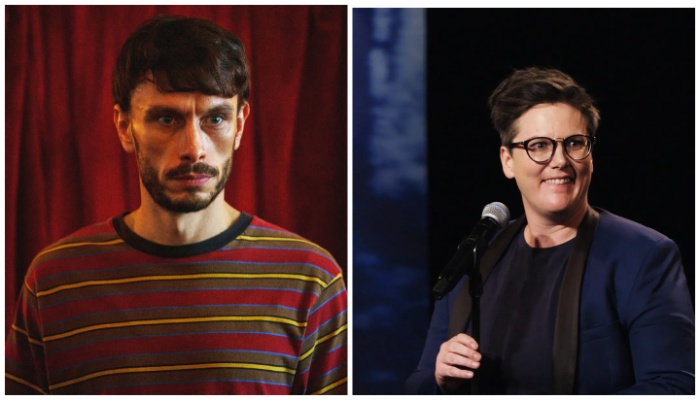By Dustin Rowles | TV | April 24, 2024

I watched Netflix’s “Baby Reindeer” in a single sitting yesterday, transfixed by Richard Gadd’s account of being stalked by a deranged woman, abused by a mentor, and initially dismissed by the police. The series is based on Gadd’s one-man show of the same name, which itself is based on his real life (which unfortunately has led to many people on the Internet trying to identify the real abusive people who inspired the characters).
The whole series is remarkable, half confessional and half thriller. (Thematic spoiler) Gadd does a tremendous job of connecting the self-hatred he feels due to the abuse with the attention he occasionally gives his stalker to string her along. Gadd’s insecurity and trauma lead him to seek validation from his stalker, even at the expense of his own safety, the safety of his loved ones, and the stability of his relationships.
It’s a powerful, gut-wrenching series, and perhaps surprisingly, I couldn’t help but compare it to Hannah Gadsby’s 2018 comedy special, Nanette. The comparison isn’t due to the similarity of their last names, but because both the special and the series are confessional in nature, addressing harrowing traumatic events in the lives of comedians. Despite the disturbing subject matter, both works are presented in the format of comedy.
Although Nanette has faced some backlash over the last six years, it subverted and upended the stand-up comedy special format. Gadsby didn’t tell jokes; she shared upsetting and personal stories, but she did so in the manner and rhythm of a stand-up comedian.
Similarly, there’s nothing funny about Baby Reindeer, but it’s told by a comedian in the structure of a comedy. The subject is bleak, but the tone is not, which — at least for me — made it easier to process and digest the deeply troubling story of a man questioning his sexuality after being raped and making one mistake after another in dealing with his stalker because of it.
Gadsby’s confessional approach in Nanette allowed her to confront misogyny and homophobia and challenge the notion that comedy should always be self-deprecating or avoid difficult topics. Likewise, Gadd used his personal experiences as a lens to examine broader issues like stalking and the sexual abuse of men, but the format dulled the edges and made a potent, powerful story more palatable, especially for those who would otherwise be hesitant to watch because of the subject matter.
Both works also offer vulnerable accounts from a profession not always known for its vulnerability, exploring the struggle to maintain one’s mental health in the face of trauma. This vulnerability helps break down the barrier between audience and performer, which may explain why so many people are invested in discovering the real people behind Gadd’s abuse. He wrote and starred in a series based on his autobiographical one-man show, making it hard not to become invested in Gadd himself, even to the point of seeking vengeance on his behalf.
But mostly what I admire about Baby Reindeer and Nanette is the courage of two people who tell jokes for a living to bare their souls to the world and provide intimate accounts of the worst moments in their lives. Both works are transformative and emotionally exhausting but also empowering in their own ways.